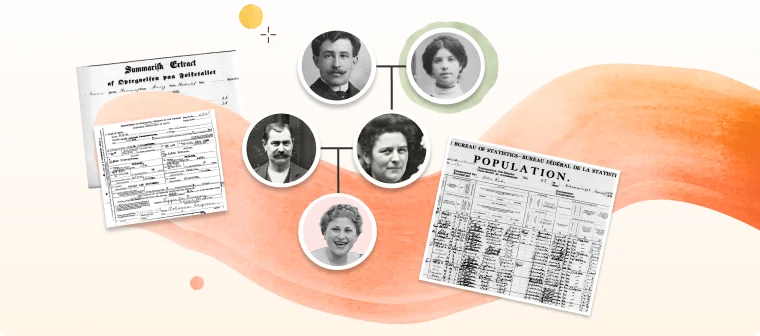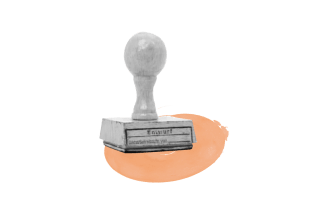Name Directory by Last Name: Last Names Starting with Ha
Explore millions of names to discover rich genealogical details and uncover your family's history
Enter a name to research
Last name meanings and origins
- Hall
The surname Hall has its origins in medieval England, deriving from the Old English word "heall," which means "hall" or "manor." It first appeared in written records in the 13th century, often associated with individuals who lived near or worked in a hall or large house, which was a significant social and administrative center during that time. The surname was commonly linked to various occupations, including those of stewards or caretakers of such estates.
- Harris
The surname Harris has its historical roots in England and is derived from the given name Harry, which itself is a diminutive of Henry. The name Henry comes from the Old Germanic name Heimirich, meaning "home ruler." The surname Harris first appeared in the medieval period, with records dating back to the 13th century.
- Hansen
The surname Hansen has its roots in Scandinavia, particularly in Denmark and Norway, where it originated as a patronymic surname meaning "son of Hans." The name Hans itself is a diminutive of Johannes, which translates to "John" in English, deriving from the Hebrew name Yochanan, meaning "God is gracious." The use of patronymics was common in these regions, where surnames were often formed by adding a suffix to the father's name, reflecting lineage and familial connections. Over time, Hansen became a common surname in these countries, associated with various occupations, including farming and trade, as many bearers of the name were involved in agrarian lifestyles or local commerce. Culturally, the surname Hansen has several variations across different languages and regions, including Hansen in Denmark and Norway, and Hansson in Sweden.
- Harrison
The surname Harrison has its roots in medieval England, deriving from the given name "Harry," which is a diminutive of Henry. The name Henry itself comes from the Old German "Heimirich," meaning "home ruler." The surname Harrison literally means "son of Harry" or "son of Henry," and it first appeared in written records in the 13th century.
- Hamilton
The surname Hamilton has its roots in Scotland, deriving from the Old English personal name "Hameldun," which means "home hill" or "hill near the home." The name first appeared in written records in the 12th century, associated with the Hamilton family, who were granted lands in Lanarkshire. Over time, the Hamiltons rose to prominence, becoming one of the most influential noble families in Scotland.
- Hart
The surname Hart has its historical origins rooted in Old English, deriving from the word "heorot," which means "hart" or "stag." This name likely first appeared in England during the medieval period, around the 12th century, as a nickname for someone who was swift or agile, akin to the characteristics of a stag. Over time, the surname became associated with various occupations, particularly in hunting and forestry, reflecting the importance of these activities in medieval society.
- Hayes
The surname Hayes has its historical roots in England and Ireland, with its earliest appearances dating back to the medieval period. The name is derived from the Old English word "haeg," meaning "hedged area" or "enclosure," which suggests that it was originally a topographical surname for someone who lived near a hedge or a fenced area.
- Harvey
The surname Harvey has its roots in medieval England, deriving from the Old Breton name "Haerviu," which means "battle worthy" or "strong in battle." The name first appeared in the 11th century, particularly in regions of England influenced by Norman and Breton settlers. Over time, the surname became associated with various occupations, often linked to land ownership or military service, reflecting the feudal system of the time.
- Hawkins
The surname Hawkins has its roots in medieval England, deriving from the given name "Hawkin," which is a diminutive form of "Haw," itself a pet form of "Henry." The name Henry comes from the Old German "Heimirich," meaning "home ruler." The surname first appeared in written records in the 13th century, particularly in the West Midlands region of England. Over time, Hawkins became associated with various occupations, including farming and trades, as surnames often reflected the profession or social role of the bearer.
- Hanson
The surname Hanson has its roots in the Old Norse name "Hannesson," which means "son of Hans." The name Hans itself is derived from Johannes, a name of Hebrew origin meaning "God is gracious." The surname first appeared in Scandinavia, particularly in Denmark and Sweden, during the Viking Age, around the 9th to 11th centuries. As the Norse people began to settle in various regions, the surname spread throughout Northern Europe.
- Harper
The surname Harper has its historical roots in England, deriving from the Old English word "hearpe," which means "harp." It originally referred to someone who played the harp, indicating a musical occupation. The name first appeared in written records in the 13th century, with its usage becoming more widespread during the medieval period.
- Hardy
The surname Hardy has its roots in medieval England and France, deriving from the Old French word "hardi," meaning "brave" or "bold." It first appeared in the 12th century, particularly in regions where Norman influence was strong following the Conquest of 1066. The name was often associated with individuals who exhibited courage or strength, possibly linked to the chivalric ideals of the time.
- Hale
The surname Hale has its historical origins in England, deriving from the Old English word "halh," which means "nook" or "recess," often referring to a sheltered or secluded place. The name first appeared in written records in the 13th century, with early instances found in various regions of England, particularly in Norfolk and Suffolk.
- Hammond
The surname Hammond has its historical roots in England, deriving from the Old French personal name "Hamon," which itself is a diminutive of "Haimon," meaning "home" or "home ruler." The name first appeared in the medieval period, particularly after the Norman Conquest of 1066, when many French names were introduced into English society. Over time, the surname evolved, with various spellings such as Hamond and Hamon appearing in historical records.
- Harding
The surname Harding has its historical roots in England, with origins tracing back to the Old English personal name "Hearding," which is derived from the word "heard," meaning "brave" or "hardy." The name first appeared in written records during the medieval period, with its earliest instances found in the 12th century. Over time, the surname became associated with various occupations, particularly in agriculture and land management, as many bearers of the name were likely to have been landowners or farmers.
- Harrington
The surname Harrington has its historical roots in England, with its earliest appearances dating back to the medieval period. The name is derived from various place names in England, particularly from locations such as Harrington in Northamptonshire and Cumbria.
- Hancock
The surname Hancock has its historical roots in England, deriving from the medieval personal name "Hanekyn," which is a diminutive form of "Hane," meaning "rooster" or "cock." The name first appeared in written records in the 13th century, particularly in the West Midlands region. Over time, it evolved into various forms, including "Hankin" and "Hancock," reflecting the common practice of adopting surnames based on given names.
- Haynes
The surname Haynes has its historical roots in England, deriving from the medieval personal name "Hain," which itself is derived from the Old French "Hain," meaning "a hedge" or "enclosure." The name first appeared in written records in the 13th century, particularly in the regions of Kent and Sussex. Over time, the surname evolved, with variations such as Haines and Haynes emerging, often reflecting local dialects and linguistic shifts.
- Hartman
The surname Hartman has its historical roots in Germany, deriving from the Middle High German personal name "Hartmann," which means "hard" or "strong man." The name first appeared in the medieval period, with records dating back to the 12th century. It was often associated with individuals who held positions of strength or leadership, possibly linked to occupations such as warriors or landowners.
- Harmon
The surname Harmon has its roots in the Old French name "Harmont," which itself is derived from the Germanic personal name "Hermann," meaning "army man" or "warrior." The surname first appeared in historical records in England during the Norman Conquest in the 11th century, where it was likely brought by Norman settlers. Over time, the name evolved, with variations such as Harman and Harmond emerging, reflecting the linguistic shifts and regional dialects of the British Isles.
- Hay
The surname Hay has its historical roots primarily in Scotland, where it is believed to have originated from the Old French word "haie," meaning "hedge" or "enclosure." This suggests that the name may have been used to denote someone who lived near a hedge or a fenced area. The earliest recorded instances of the surname date back to the 12th century, with notable mentions in historical documents such as the "Register of the Great Seal of Scotland." Over time, the surname became associated with various social roles, including landowners and nobility, particularly in the regions of Fife and Angus.
- Hampton
The surname Hampton has its historical roots in England, deriving from the Old English elements "ham," meaning "home" or "village," and "tun," meaning "enclosure" or "settlement." This suggests that the name originally referred to someone who lived in or near a homestead or village, likely indicating a geographical feature or settlement. The surname first appeared in historical records during the medieval period, with variations noted in different regions.
- Hayward
The surname Hayward has its historical roots in medieval England, deriving from the Old English term "hegweard," which translates to "hay keeper" or "guardian of the hay." This occupational surname first appeared in the 12th century, particularly in rural areas where hay was a vital resource for livestock. As agriculture was a cornerstone of medieval life, those who managed hay supplies played an essential role in their communities.
- Hanna
The surname Hanna has its historical roots primarily in Hebrew, derived from the name "Channah," meaning "grace" or "favor." It first appeared in ancient times, particularly within Jewish communities, and has been associated with various occupations and social roles, often linked to religious or scholarly pursuits. Over time, the surname has evolved, with variations appearing in different cultures, reflecting the migration patterns of Jewish populations throughout Europe and beyond.
- Hahn
The surname Hahn has its historical roots in Germany, where it is derived from the Middle High German word "hane," meaning "rooster" or "cock." This avian association likely points to a nickname or occupational title for someone who may have kept chickens or had a notable characteristic akin to a rooster, such as being proud or vocal. The surname first appeared in written records during the medieval period, with its usage becoming more widespread in the 13th century.
- Hartley
The surname Hartley has its historical roots in England, deriving from the Old English elements "heorot," meaning "hart" (a male deer), and "leah," meaning "woodland clearing" or "meadow." This suggests that the name originally referred to someone who lived near a clearing where deer were found, indicating a connection to nature and possibly hunting. The surname first appeared in written records in the 13th century, with various spellings such as "Hertley" and "Hartlie," reflecting the phonetic variations of the time.
- Hayden
The surname Hayden has its historical roots in the Old English and Anglo-Saxon cultures, deriving from the place name "Hayden," which is believed to mean "hay valley" or "valley where hay is made." The name first appeared in England during the medieval period, with records dating back to the 13th century. It was often associated with individuals who lived near or worked in such valleys, indicating a connection to agriculture and rural life.
- Hatch
The surname Hatch has its historical roots in England, with its earliest appearances dating back to the medieval period. The name is derived from the Old English word "hæcc," meaning "a hatch" or "a gate," which likely referred to a small door or opening in a wall or fence.
- Haines
The surname Haines has its historical roots in England, deriving from the Old French personal name "Hain," which itself is derived from the Germanic name "Hagan," meaning "enclosure" or "hedge." The name first appeared in written records in the 13th century, particularly in the regions of Kent and Sussex. Over time, the surname evolved, with variations such as Haynes and Hains emerging, often reflecting local dialects and linguistic shifts.
- Hays
The surname Hays has its historical origins rooted in Scotland, particularly in the region of Fife, where it is believed to have derived from the Gaelic word "hae," meaning "hedge" or "enclosure." The name first appeared in written records in the 12th century, associated with the lands of Hays in Fife. Over time, the surname became linked to various occupations, particularly those related to agriculture and land management, reflecting the agrarian lifestyle of early Scottish society.
- Hastings
The surname Hastings has its roots in medieval England, deriving from the Old English personal name "Hæstingas," which means "the people of Hæsta." The name is believed to have originated in the area around Hastings in Sussex, a town that gained prominence after the Norman Conquest of 1066. The Hastings family became notable landowners and played significant roles in the feudal system, with members often serving as knights or in other military capacities.
- Haley
The surname Haley has its roots in the Old English personal name "Hægel," which means "hay" or "hay clearing," and is derived from various place names in England, such as Halewood and Halewell. The name first appeared in historical records during the medieval period, with its earliest instances found in the 13th century.
- Hansson
The surname Hansson has its roots in Scandinavia, particularly in Sweden, where it is derived from the patronymic system, meaning "son of Hans." The name Hans itself is a diminutive of Johannes, which means "God is gracious" in Hebrew. The use of patronymics was common in medieval Scandinavia, where surnames were often formed by adding "son" or "dottir" (daughter) to the father's name.
- Hatfield
The surname Hatfield has its origins in England, deriving from the Old English elements "haet" meaning "a dwelling" and "feld" meaning "open land" or "field." This suggests that the name originally referred to someone who lived near a field or an open area, possibly indicating a geographical feature or settlement. The earliest recorded instances of the surname date back to the 12th century, with notable mentions in historical documents from the counties of Hertfordshire and Yorkshire.
- Hansdatter
The surname Hansdatter has its roots in Scandinavian naming traditions, particularly in Norway and Denmark, where it originated as a patronymic surname. The name literally translates to "daughter of Hans," with "Hans" being a common given name derived from Johannes, meaning "God is gracious." This naming convention was prevalent in the Nordic countries from the late Middle Ages onward, reflecting a societal structure where lineage and familial connections were emphasized.
- Hawley
The surname Hawley has its roots in England, with historical origins tracing back to the Old English personal name "Haw," which means "hedge" or "enclosure," combined with "leah," meaning "wood" or "clearing." This suggests that the name may have originally referred to someone who lived near a hedged area or a clearing in the woods. The earliest recorded instances of the surname date back to the 13th century, particularly in the counties of Kent and Sussex.
- Hagen
The surname Hagen has its roots in Old Norse and Germanic languages, with its earliest appearances traced back to the medieval period in Scandinavia and Germany. The name is derived from the Old Norse word "hagi," meaning "enclosure" or "fenced area," which suggests that it may have originally referred to someone who lived near or worked on a piece of enclosed land, such as a pasture or farm.
- Hackett
The surname Hackett has its historical roots in England and Ireland, with its earliest appearances dating back to the medieval period. The name is believed to be derived from the Old French personal name "Hacquet," a diminutive of "Hac," which itself is a diminutive of "Hacard," meaning "little Hac." This suggests that the name may have originally been a nickname for someone small or young.
- Hardin
The surname Hardin has its historical roots primarily in England, with its earliest appearances dating back to the medieval period. The name is believed to derive from the Old English personal name "Heard," meaning "hardy" or "brave," combined with the suffix "-in," which denotes "son of" or "descendant of." Over time, the surname evolved, with variations appearing in different regions, often reflecting local dialects and linguistic changes.
- Hanks
The surname Hanks has its historical roots primarily in England, where it is believed to have originated as a patronymic surname derived from the medieval given name "Hank," a diminutive of "Henry." The name Henry itself comes from the Old German "Heimirich," meaning "home ruler." The earliest records of the surname date back to the 13th century, with variations appearing in different regions. Over time, the surname Hanks became associated with various occupations, particularly in agriculture and trade, as many bearers of the name were involved in farming or local commerce.
Start your family tree for free
Start by entering a few names and MyHeritage will do the rest, so you can make meaningful discoveries

Explore historical records

Explore 1,810,427,080 census and voter list records to get a detailed snapshot of your ancestors' lives. Discover names, ages, occupations, family relationships, residences, and much more.

Explore 4,647,704,406 birth, marriage, and death records. Uncover valuable details about major family milestones and find names, dates, places, occupations, and residences of your ancestors and relatives.

Search 266,544,192 military records and discover the stories of courage and resilience in your family history. Military records include enlistment dates, ranks, locations, and even physical descriptions.
Embark on a fascinating journey to discover your family history

Start by adding a few names. Myheritage's automatic matching technology will help you expand your family tree and delight you with new discoveries.

Reveal your ethnic origins and find relatives you never knew existed with our simple DNA kit.

Dive into MyHeritage's international collection of 36.7 billion historical records - start with a name of an ancestor and see what our collections can reveal about your family history.
About MyHeritage

MyHeritage is the leading global platform for family history. It enriches the lives of people worldwide by enabling them to uncover more about themselves and where they belong. With a suite of intuitive products, billions of historical records, an affordable at-home DNA test, and AI-powered photo tools, MyHeritage creates a meaningful discovery experience that is deeply rewarding. The MyHeritage platform is enjoyed by tens of millions of people around the world who treasure and celebrate their heritage.








